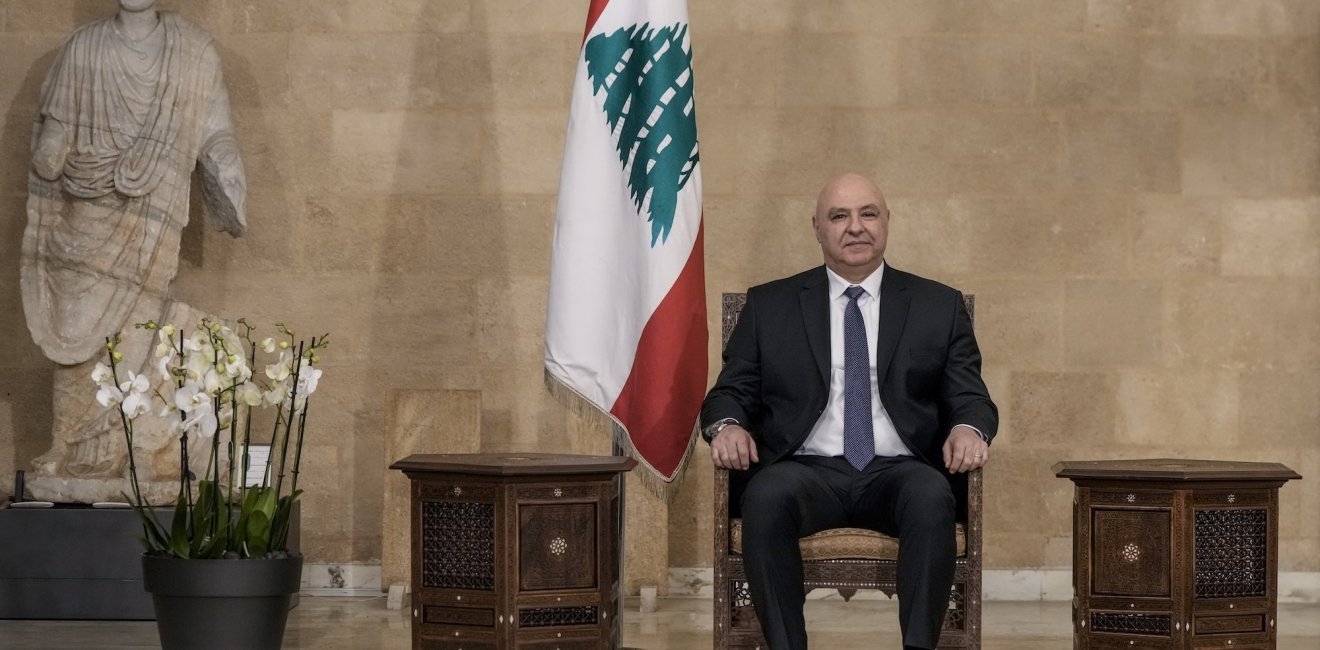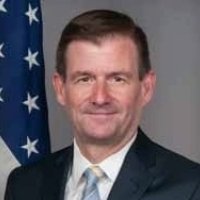The January 9, 2025, election of Joseph Aoun to a six-year term as president of the Lebanese Republic is another stride forward for that troubled country toward restored sovereignty and stability. Joseph Aoun succeeds Michel Aoun—no relation—who left the office at the end of his term in October 2022. Hezbollah and its allies were unable to secure the position for their favored candidate but had sufficient votes to block the evenly divided parliament from electing any alternative, forcing an already crisis-ridden and bankrupt country into a long period of stalemate. Without a president, Lebanon's weak institutions of governance went into abeyance. All that has begun to change with Hezbollah's historic blunder of joining the Iranian-backed, Hamas-triggered war on Israel in October 2023. Israel's devastating military blows on Hezbollah and Iran have changed the power equation in Lebanon and the region for now.
For those who seek restored sovereignty and stability for the Lebanese people, this is a time for celebration.
The breakthrough in electing a Lebanese president unburdened by Iranian sponsorship and untainted by political association with Hezbollah is one tangible indication. For those who seek restored sovereignty and stability for the Lebanese people, this is a time for celebration. Aoun's comments about establishing "positive neutrality" harken back to a founding principle for the Lebanese state, which tried (but failed) to keep regional power contests from infecting Lebanon.
It is also a time for the Lebanese to make some hard choices because the journey to re-establish sovereignty is just beginning. Joseph Aoun is widely respected and has been a capable leader of the Lebanese Army and partner for America in that role. However, in his new job as president, Aoun will face the reality that the office has limitations, reflecting the post-civil war redistribution of power away from the Maronite presidency in favor of the Sunni prime minister and multi-confessional cabinet of ministers as well as the Shia-led parliament. The welcome election of a president, in fact, is just the start of a bargaining process. Next comes the appointment of a prime minister and cabinet capable of gaining the confidence of parliament based in part on a statement of their intended policies and principles. Typically, this process can get stuck by the fractious nature of Lebanese politics. However, with Hezbollah and Iran clearly down (although not out), those forces in Lebanon opposed to Iranian and Syrian domination have an opportunity to unite and build on the shift in power.
The long run
Meeting Lebanon's responsibilities under the recent ceasefire with Israel will require such determination. In the longer run, the most significant task ahead is to disarm Hezbollah throughout the country without igniting sectarian tension or conflict. Unlike all other Lebanese civil war-era militias, Hezbollah used Iranian and Syrian patronage to keep its arms and control over sizable parts of Lebanon in defiance of the Taif Accord and multiple UN Security Council resolutions. The Lebanese will not enjoy sovereignty, stability, and peace—control over their own fate through elected institutions—so long as Hezbollah retains its arms and can act as a state within a state. There are signs that the state has begun to restore some of its authorities as Hezbollah's grasp weakens, such as preventing Iranian smuggling of cash to Hezbollah through the Beirut International Airport. There are many more such tests to come.
A big one will be managing the complicated Lebanese-Syrian relationship. Caretaker Prime Minister Najib Mikati will soon be in Damascus for talks with de facto leader Ahmed al-Sharaa. Re-setting relations will be a key task ahead for President Aoun, making sure that Sharaa's words of respect for Lebanese sovereignty and territorial integrity are translated into deeds. While a sense of relief at the departure of Assad is palpable in many Lebanese communities, so too is anxiety that the extremist roots of HTS do not bode well for either the Syrian people or their neighbors in Lebanon.
Restoring sovereignty is essential, but integral to that effort will be rebuilding state institutions and a functioning economy.
Restoring sovereignty is essential, but integral to that effort will be rebuilding state institutions and a functioning economy. As a career soldier, Aoun has correctly stood aside from the political debates and competition over the needed reforms to put Lebanon's house back in order, beginning with the banking sector and state finances. He will no longer have that luxury of silence. The orientation of the next prime minister and composition of the cabinet—including the finance minister—should be closely assessed for evidence of meaningful commitments to change and basic reforms. Without such words and actions, significant levels of international assistance will be unlikely. Saudi, French, and American support for Aoun's election is notable. Hopefully, it will be sustained.
The incoming Trump administration should recognize that to turn the tables permanently on Iran requires an engaged and multi-faceted regional strategy. It should have a strong Lebanon component to diminish further Iran's ability to magnify and exploit Lebanese weaknesses in order to project its own power and interests in the Levant. American neglect at this stage would be a gift to Iran. However, external support and goodwill for Lebanon are necessary but not sufficient. Lebanese themselves must make the hard choices needed to rebuild a functioning country. At long last, that opportunity is within their grasp.
The views represented in this piece are those of the author and do not express the official position of the Wilson Center.






